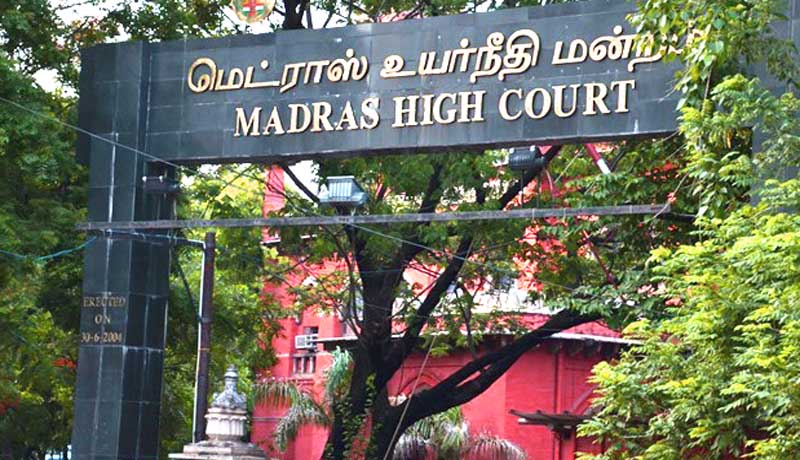Settlement Commission has No Power to Impose an Additional Levy which is not specified in the SCN: Madras HC

Madras High Court
Madras High Court
In a recent ruling, the division bench of the Madras High Court held that the Settlement Commission cannot impose an additional duty by going beyond the scope of the Show Cause Notice given to the assessee.
The petitioners were aggrieved by the order of the settlement Commissioner wherein an Additional Duty of Excise (ADE) was levied on them along with the Basic Customs Duty and Special Additional Duty (SAD). The writ petition filed against the said order was dismissed by the single bench of the High Court by finding that the appellant had conceded to the imposition of ADE @ 8%. The petitioner moved a writ appeal before the division bench against the order of the single judge.
Before the division bench, the assessee contended that as per the Customs Tariff Act, only one among the Additional Excise Duty and the Special additional Duty can be levied, and not both. Relying upon Section 3 A (5) of the CTA, they contended that if SAD was levied, ADE could not have been levied on them. It was further argued that the Settlement Commission cannot go beyond the Show Cause Notice and cannot impose an additional levy on the appellant.
For the Revenue, it was contended that the Settlement Commission proceeded based on the calculation submitted by the appellant which included an element of ADE, besides BCD and CVD.The revenue further contended that the Settlement Commission has the same powers which are available to the Assessing Officer under Section 127 C of the Act, and hence, the levy is justifiable.
The division bench comprising of Justice Rajiv Shakdher and Justice M.M Sunder noticed that the duty imposed under the 1957 Act is in the nature of excise duty. The bench further found that the Notification No.21/2002, dated 01.03.2002, exempts, so much of additional duty which is leviable under sub-section (1) of Section 3 of the CTA, which is in excess of the rate specified in the corresponding entry in column 5 of the table appended to the said notification. Furthermore, section 3 (1) of the CTA speaks about excise duty andthe said Notification restricts the duty to 16%.It was therefore, observed that “ADE, which is in the nature of excise duty is the additional duty, which, if imposed will take it beyond the consolidated rate of 16% in terms of Notification No.21/2002, dated 01.03.2002, as CVD, at the rate of 16% is already imposed.”
It was further noted that as per s. 3A(1)of the CTA, SAD can be levied at the rate specified by the Central Government, by way of a Notification published in the Official Gazette, having regard to the maximum sales tax, local tax or other charges for the time being leviable on a like article on its sale or purchase in India. Further, this provision is followed by a proviso, which, provides that until such rate is specified by the Central Government, SAD would be levied and collected at the rate of 8% of the value of the article imported in India.
“It is not in dispute that even if ADE was traced to 3 A (1) of CTA, by virtue of the Notification, the rate of duty could only be 4%. The indication in the proviso to Section 3A(5) of the CTA that the rate of duty could be 8% is subject to any Notification being issued by the Central Government. Since, a Notification is in place, the rate of duty could not have exceeded 4%.”
With regard to the assesses contention that the Settlement Commission cannot go beyond the Show Cause Notice, the bench found that ADE could not have been imposed on the appellant, since it did not form part of SCN. “the approach adopted by the Settlement Commission resulted in making matters worse for the appellant. In our opinion, the Settlement Commission could not have crossed the periphery of the SCN, and imposed a duty and that too, at rate higher than, what could have been mandated in law.”
“The reason for the same, is that, in our opinion, even the Assessing Officer could not have gone beyond the SCN. Therefore, by logical corollary, if, the Assessing Officer could not have gone beyond the SCN, we have grave doubts as to whether the Settlement Commission, in exercise of powers under Section 127C of the Act, could have included ADE in the final order passed by it, and that too, at a rate, which adversely, impacted the appellant's financial burden, in the given facts and circumstances.”
Read the full text of the Judgment below.


